Filter by
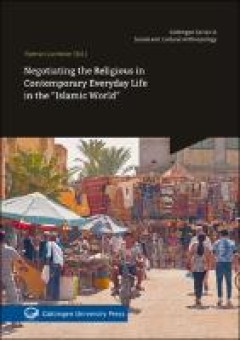
Negotiating the religious in contemporary everyday life in the "Islamic world"
The contributions to the present volume show that the countries that are often presented in the literature as forming part of a stereotypical and seemingly monolithic “Islamic world” in fact represent considerable diversity. From Iran to Senegal, we encounter a vast array of social and religious structures, historical trajectories, political regimes and relative positions of societies and i…
- Edition
- -
- ISBN/ISSN
- 9783863954932
- Collation
- 260 p.
- Series Title
- -
- Call Number
- 390 LOI n
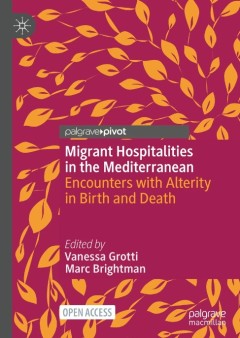
Migrant hospitalities in the mediterranean : encounters with alterity in birt…
This open access book applies insights from the anthropology of hospitality to illuminate ethnographic accounts of migrant reception in various parts of the Mediterranean. The contributors ground the idea and practice of hospitality in concrete ethnographic settings and challenge how the casual usage of Derridean or Kantian notions of hospitality can blur the boundaries between social scales an…
- Edition
- -
- ISBN/ISSN
- 9783030565855
- Collation
- x, 139 p. ; ill
- Series Title
- -
- Call Number
- 304.8 GRO m
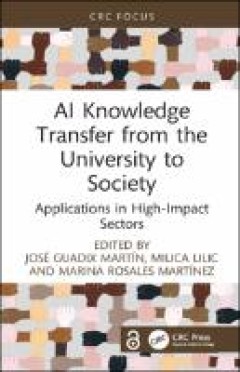
AI Knowledge Transfer from the University to Society : Applications in High-I…
AI Knowledge Transfer from the University to Society: Applications in High-Impact Sectors brings together examples from the "Innovative Ecosystem with Artificial Intelligence for Andalusia 2025" project at the University of Seville, a series of sub-projects composed of research groups and different institutions or companies that explore the use of Artificial Intelligence in a variety of high-im…
- Edition
- -
- ISBN/ISSN
- 9781003276609
- Collation
- 148p. ; ill.
- Series Title
- -
- Call Number
- 006.3 JOS a
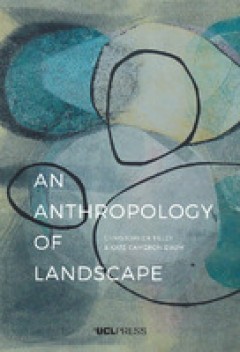
An anthropology of landscape
An Anthropology of Landscape tells the fascinating story of a heathland landscape in south-west England and the way different individuals and groups engage with it. Based on a long-term anthropological study, the book emphasises four individual themes: embodied identities, the landscape as a sensuous material form that is acted upon and in turn acts on people, the landscape as contested, and it…
- Edition
- -
- ISBN/ISSN
- 9781911307433
- Collation
- 346 p.: colour, ill.
- Series Title
- -
- Call Number
- 333.95160941 TIL a
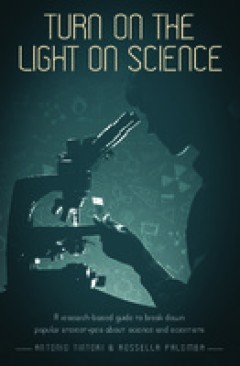
Turn on the light on science : a research-based guide to break down popular s…
"Scientists deserve public recognition. The ways that they are depicted, however, are severely limited in physical and personal traits, helping to establish and enhance stereotypes under the general title of ‘scientist’. These stereotypes range from the arrogant researcher who wants to rule the world, to the lab coat wearing ‘nerdy’ genius, but all generally fall to an extreme view of a…
- Edition
- -
- ISBN/ISSN
- 9781911529057
- Collation
- xvi, 103p.
- Series Title
- -
- Call Number
- 509 TUR t
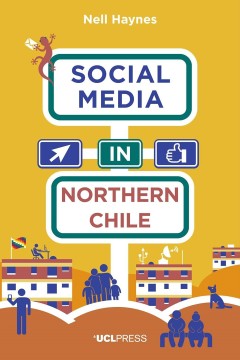
Social media in northern Chile : posting the extraordinarily ordinary
Based on 15 months of ethnographic research in the city of Alto Hospicio in northern Chile, this book describes how the residents use social media, and the consequences of this use in their daily lives. Nell Haynes argues that social media is a place where Alto Hospicio’s residents – or Hospiceños – express their feelings of marginalisation that result from living in city far from the na…
- Edition
- -
- ISBN/ISSN
- 9781910634592
- Collation
- xii, 178p.: ill.
- Series Title
- -
- Call Number
- 302.2310983 SOC h

Museum activism
Only a decade ago, the notion that museums, galleries and heritage organisations might engage in activist practice, with explicit intent to act upon inequalities, injustices and environmental crises, was met with scepticism and often derision. Seeking to purposefully bring about social change was viewed by many within and beyond the museum community as inappropriately political and antithetical…
- Edition
- 13
- ISBN/ISSN
- 9781351251044
- Collation
- xxix, 406 p. : ill.
- Series Title
- -
- Call Number
- 069 JAN m
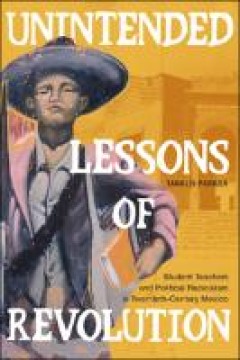
Unintended lessons of revolution : student teachers and political radicalism …
Tanalís Padilla traces the history of the normales rurales—rural schools in Mexico that trained campesino teachers—and outlines how despite being intended to foster a modern, patriotic citizenry, they became sites of radical politics.
- Edition
- 4
- ISBN/ISSN
- 9781478022084
- Collation
- ix, 371 p. : ill.
- Series Title
- -
- Call Number
- 370.91734 PAD u
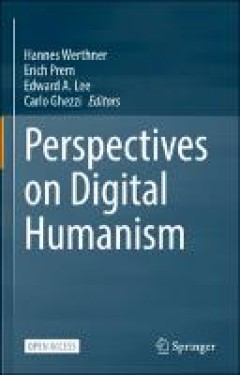
Perspectives on digital humanism
This open access book aims to set an agenda for research and action in the field of Digital Humanism through short essays written by selected thinkers from a variety of disciplines, including computer science, philosophy, education, law, economics, history, anthropology, political science, and sociology. This initiative emerged from the Vienna Manifesto on Digital Humanism and the associated le…
- Edition
- -
- ISBN/ISSN
- 9783030861445
- Collation
- xviii, 342 p. : ill.
- Series Title
- -
- Call Number
- 004 WER p
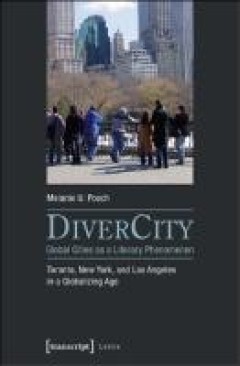
DiverCity - global cities as a literary phenomenon : Toronto, New York, and L…
Based on the structured analysis of selected North American novels, this work examines global cities as a literary phenomenon (»DiverCity«). By analyzing Dionne Brand's Toronto, »What We All Long For« (2005), Chang-rae Lee's New York, »Native Speaker« (1995), and Karen Tei Yamashita's Los Angeles, »Tropic of Orange« (1997), Melanie U. Pooch provides the connecting link f…
- Edition
- 20
- ISBN/ISSN
- 9783839435410
- Collation
- 241 p. : ill.
- Series Title
- -
- Call Number
- 810.9 POO d
 Computer Science, Information & General Works
Computer Science, Information & General Works  Philosophy & Psychology
Philosophy & Psychology  Religion
Religion  Social Sciences
Social Sciences  Language
Language  Pure Science
Pure Science  Applied Sciences
Applied Sciences  Art & Recreation
Art & Recreation  Literature
Literature  History & Geography
History & Geography